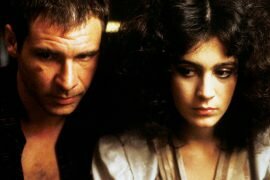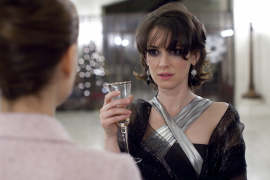Cinematography is an art that combines a variety of others. How often do we miss a beat whilst enjoying sounds in films? And how could it be otherwise when the shot starts with notes of Bach or, for example, Stravinsky? BFJ reminds readers of a few films where the role of classical music is on a par with acting, starting with the first three…
1. Melancholia, 2011 by Lars von Trier
The list could be opened by many masterpieces but we’ll start with film of one Danish maestro. The first shots of Melancholia killed the intrigue which, however, can be guessed effortlessly. But the main issue is how it was done.
Solemnly detached and without regrets Prelude to Richard Wagner’s opera “Tristan and Isolde” gives the verdict to the world – execution can not be pardoned. While dead birds fall like a stones and Justine in white (name as a tribute to one of Marquis de Sade works) sneaks through the hostile vines, a couple Earth – Melancholy spinning in “dance of death.” Does that mean love is destructive? Or that all has its date? Or that our life is meaningless? Trier, as always, is multi-layered. But as long as Wagner sounds, we don’t dare to resist the film slogan “Enjoy it while it lasts” and fascinate to witness the beauty of the shot .

2. A Clockwork Orange, 1971 by Stanley Kubrick
A masterful but truly frightening Kubrick creature based on not less stunning book of Anthony Burgess is opened by sounds of March from “Funeral Music for Queen Mary” written by Henry Purcell. Played on synthesizer it emphasize the futuristic frame (white has never been so oppressive) and medieval stability. March is grounded and anticipates detachment cruelty. And how else could one start a film about violence and cynicism, if not with “funeral” music?
Kubrick films are, in principle, musically refined quite sufficiently, and A Clockwork Orange is no an exception. Rossini overtures – The Thieving Magpie and William Tell – join Henry Purcell on the soundtrack. Their deliberate major only reinforces feelings from the screen violence and cruelty acts. And this line
This line is crowned by no one other than Beethoven (Symphony No.9 in D Minor, Opus 125). There is almost nothing from early romantic “Ode to Joy” when art has started to mock at religion and tend to sexual connotations. But at all events, this film is a necessary compulsory treatment and example of distortions to such an extent that there’s no longer faith in anything.

3. Picnic at Hanging Rock, 1975 by Peter Weir
A mysterious and elusively charming film about innocence, mystery and all the things constituting people’s life at the beginning of the 20th century. In Hanging Rock there is still space for romance, featheriness and flavour, good manners, amorousness and unfathomable nature. And besides that – the magic frame, intrigue leaving at noon and wonderful music.
Great pillars of European classical music – Bach, Beethoven, Mozart and Tchaikovsky – infused with even more ancient sounds of Gheorghe Zamfir flute. And the choice of Piano Concerto No 5 in E Flat Major by Ludwig van Beethoven for school classes (solidity of education) or Upper Light tradition at the sounds of Mozart’s Eine Kleine Nachtmusik is incredibly natural. In it the source of the movie magic or not, but to interrupt this anxious empathy while watching is impossible.





